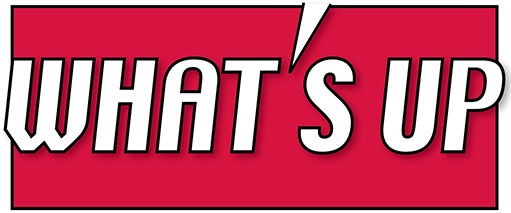
Japan hopes to beat the COVID-19 pandemic and go ahead with the Tokyo Olympics in July. OMAR CHAUDHURI looks back at the history of this global event.
The modern Olympic Games started in 1896, but it was the Greeks in ancient times who came up with the idea of a competition across multiple sports. There are two competing myths of how the ancient games began.
One is about King Oeomaus who challenged any man to ride away with his daughter, Hippodamia, on a chariot without getting killed by King Oeomaus himself. Many failed, but a man named Pelops managed to sabotage the axle on the king’s chariot. He rode away with the daughter whilst the king’s chariot collapsed. Pelops hosted a wedding celebration that included athletic games. Some regard this occasion to be the first Olympics.
The other story concerns Heracles, son of Zeus. A Greek goddess named Hera forced Heracles into killing his children. To redeem his honour, he served King Eurystheus, who ordered him to do twelve tasks for him. After completing the tasks, Heracles supposedly organised the Olympic games to celebrate his fifth labour, in which he had to clean horse stalls. In holding this event, he was thanking Zeus for helping him to complete the task. Both these stories are set in Olympia.
Although the exact date is disputed, it is set around 776 BC. There were only men at the games. The athletes competed in the nude; the beauty of their nakedness reflected the inner harmony and balance of their body and mind. These events brought together athletes from Africa, Spain, and Greece.

Modern Olympics
The modern Olympics began in 1896. The whole idea of reviving the Greek tradition was sparked by the discovery of Olympia, the ancient Olympic home.
Many people became interested in the ancient city, and the games that went on there. One of them was Pierre de Coubertin, a French educator. On 23 June 1894, he proposed a radical idea to start the modern Olympics. Soon an official organisation, the International Olympic Committee (IOC), was formed, leading to the staging of the first modern Olympics in Athens two years later. Over 300 athletes from 14 nations competed in this grand event.
The summer Olympics has continued every four years — except for breaks for world wars — ever since.
Olympic symbols
The Olympics is not just a sporting event but signifies a deeper and broader meaning to the world. Three things symbolise the Olympics: the five rings, the motto, and the torch. The five interlacing rings represent the five continents — Africa, the Americas, Asia, Europe, and Oceania. They show the universality and unity of the Olympics and the meeting of athletes from across the world.
The motto in Latin is Citius, Altius, Fortius, which means swifter, higher, stronger. It encourages all athletes to give their best and strive for personal excellence.
The torch is lit in the ancient city of Olympia, in front of the ruins of the Temple of Hera. The only way the torch can be lit is by the sun’s rays. It is then passed in a relay fashion to Athens, and then to its destination, the host city. The flame is only extinguished at the end of the games.
Traditions
There are common traditions and events that the modern Olympics have with the ancient Olympics. The marathon is inspired by the long journey of a Greek soldier in 490 BC and was introduced in the modern Olympics. However, running was a common tradition across both eras. In the first ancient Olympics, there was a foot race lasting about 200 yards, and now we have all kinds of running events.
The pentathlon existed in both the modern and ancient games, but is very different in its structure today. In ancient times, the events were discus, jumping, javelin, running, and wrestling. In the modern games, the events are pistol shooting, epee fencing, swimming, riding, and cross-country running.
The similarities are not just in the sport. The modern Olympics has elaborate opening and closing ceremonies. The ancient Olympics had many ceremonies throughout the competition. Since the ancient Olympics was done in honour of Zeus, one of the main ceremonies in the ancient games was to swear in front of Zeus’ statue that the athletes would compete in the games fairly.
There is no money at stake in the Olympics, just pride for representing one’s nation. The games are not about beating your opponent, it is about competing together. One hundred and twenty-five years on from when the Olympics was born — and one year later than planned — it arrives in Tokyo for the second time, making it only the third city to host the Olympics multiple times. From a mere 14 countries in 1896, to over 200 nations in 2021, the Olympics is the jewel in the crown of all sporting events.
VOCAB BUILDER
sabotage (say “se-bo-taj”; verb) = destroy or damage something to gain an advantage over one’s competitor.
pentathlon (say “pen-teth-lon”; noun) = an athletic event with five different sports for each competitor.
